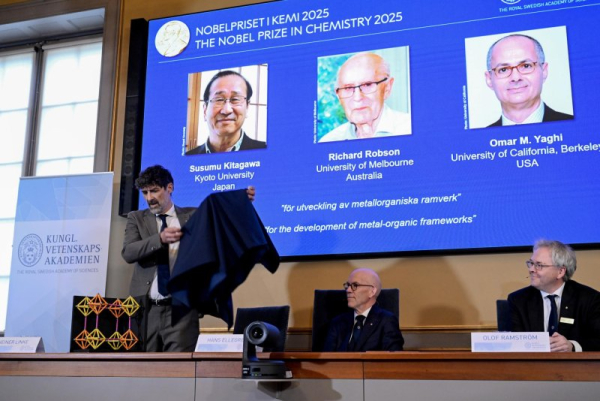
Three researchers from Australia, Japan, and the United States were honored with the Nobel Prize in chemistry for their contributions to the field of molecular design, the Nobel Foundation declared on Wednesday.
The Royal Swedish Academy of Sciences presented the distinguished honor to Susumu Kitagawa of Japan (Kyoto University); Richard Robson of Britain (University of Melbourne, Australia); and Omar M. Yaghi of Jordan (University of California, Berkeley). Accompanying the award is a monetary prize of $1.17 million, to be shared equally among the three recipients.
The scientists gained recognition for pioneering a novel approach to molecular structure, featuring spaces that permit the passage of gases and other chemical elements.
Metal-organic frameworks, as they are known, offer possibilities for capturing and storing particular substances — for instance, extracting water from the arid air of deserts or sequestering carbon dioxide. Also, the structures can serve as catalysts, facilitating chemical reactions.
“Metal-organic frameworks possess immense potential, opening up previously unimagined avenues for the development of bespoke materials with innovative functionalities,” remarked Heiner Linke, chairperson of the Nobel Committee for Chemistry.
According to a statement released by the Nobel Foundation, scientists drawing inspiration from Kitawaga, Robson, and Yaghi’s seminal discoveries have successfully synthesized tens of thousands of alternative metal-organic frameworks. These have seen use in diverse applications, including the elimination of PFAS, or persistent chemicals, from water sources and the degradation of trace pharmaceutical compounds in the environment.
Sourse: www.upi.com





